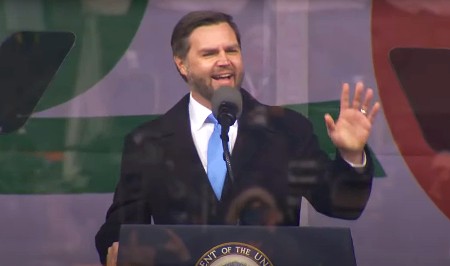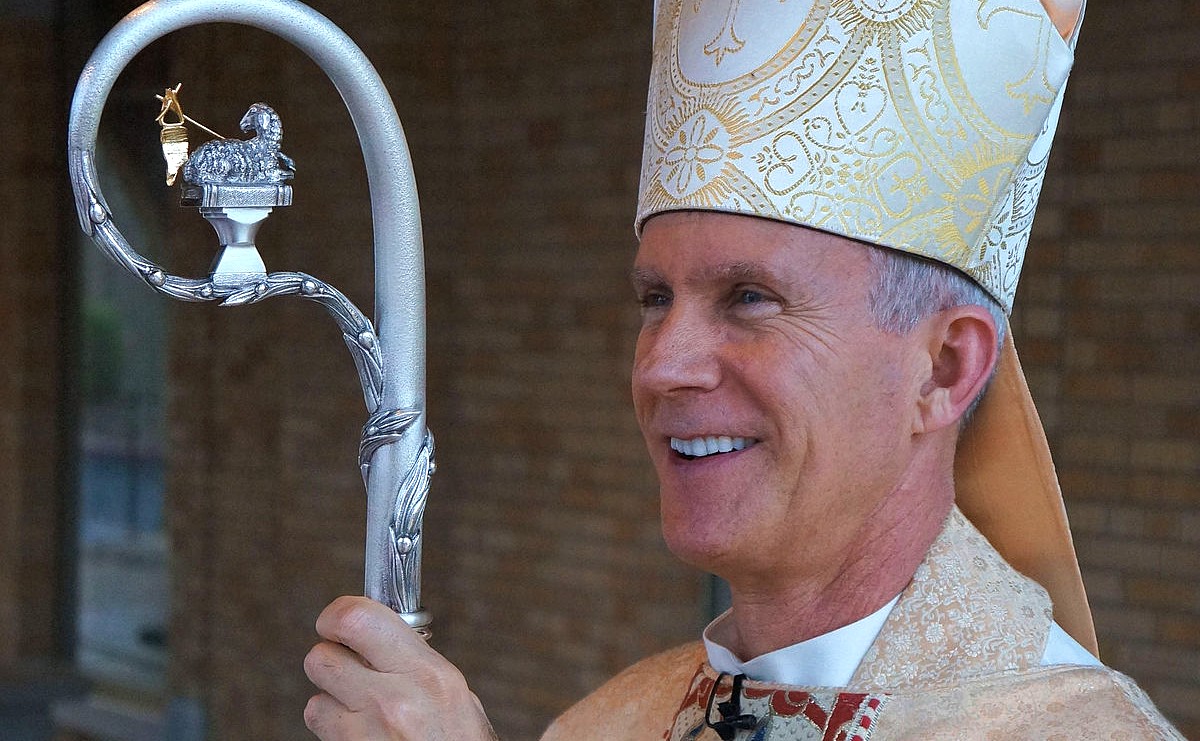We ask you, urgently: don't scroll past this
Dear readers, Catholic Online was de-platformed by Shopify for our pro-life beliefs. They shut down our Catholic Online, Catholic Online School, Prayer Candles, and Catholic Online Learning Resources essential faith tools serving over 1.4 million students and millions of families worldwide. Our founders, now in their 70's, just gave their entire life savings to protect this mission. But fewer than 2% of readers donate. If everyone gave just $5, the cost of a coffee, we could rebuild stronger and keep Catholic education free for all. Stand with us in faith. Thank you.Help Now >
Pope's Homily at Mass at Altoetting
FREE Catholic Classes
"Mary Leaves Everything to the Lord's Judgment"
ALTOETTING, Germany, SEPT. 12, 2006 (Zenit) - Here is a Vatican translation of the homily Benedict XVI gave at the Celebration of the Eucharist Monday at the Kapellplatz Altoetting.
* * *
Dear Brothers and Sisters!
In today's First Reading, Responsorial Psalm and Gospel, three times and in three different ways, we see Mary, the Mother of the Lord, as a woman of prayer. In the Book of Acts we find her in the midst of the community of the apostles gathered in the Upper Room, praying that the Lord, now ascended to the Father, will fulfill his promise: Within a few days you will be baptized with the Holy Spirit (1:5).
Mary leads the nascent Church in prayer; she is, as it were in person, the Church at prayer. And thus, along with the great community of the saints and at their center, she stands even today before God interceding for us, asking her Son to send his Spirit once more upon the Church and to renew the face of the earth.
Our response to this reading is to sing with Mary the great hymn of praise which she raises after Elizabeth calls her blessed because of her faith. It is a prayer of thanksgiving, of joy in God, of blessing for his mighty works. The tenor of this hymn is clear from its very first words: My soul magnifies -- makes great -- the Lord. Making the Lord great means giving him a place in the world, in our lives, and letting him enter into our time and our activity: Ultimately this is the essence of true prayer. Where God is made great, men and women are not made small: There too men and women become great and the world is filled with light.
In the Gospel passage, Mary makes a request of her Son on behalf of some friends in need. At first sight, this could appear to be an entirely human conversation between a Mother and her Son and it is indeed a dialogue rich in humanity. Yet Mary does not speak to Jesus as if he were a mere man on whose ability and helpfulness she can count. She entrusts a human need to his power -- to a power which is more than skill and human ability.
In this dialogue with Jesus, we actually see her as a Mother who asks, one who intercedes. As we listen to this Gospel passage, it is worth going a little deeper, not only to understand Jesus and Mary better, but also to learn from Mary the right way to pray. Mary does not really ask something of Jesus: She simply says to him: They have no wine (John 2:3).
Weddings in the Holy Land were celebrated for a whole week; the entire town took part, and consequently much wine was consumed. Now the wedding couple find themselves in trouble, and Mary simply says this to Jesus. She doesn't tell Jesus what to do. She doesn't ask for anything in particular, and she certainly doesn't ask him to perform a miracle to make wine. She simply hands the matter over to Jesus and leaves him to decide what to do.
In the straightforward words of the Mother of Jesus, then, we can see two things: on the one hand her affectionate concern for people, that maternal affection which makes her aware of the problems of others. We see her heartfelt goodness and her willingness to help. This is the Mother that generations of people have come here to Altoetting to visit. To her we entrust our cares, our needs and our troubles. Her maternal readiness to help, in which we trust, appears here for the first time in the holy Scriptures.
But in addition to this first aspect, with which we are all familiar, there is another, which we could easily overlook: Mary leaves everything to the Lord's judgment. At Nazareth she gave over her will, immersing it in the will of God: Here am I, the servant of the Lord; let it be with me according to your word (Luke 1:38). And this continues to be her fundamental attitude.
This is how she teaches us to pray: not by seeking to affirm our own will and our own desires before God, but by letting him decide what he wants to do. From Mary we learn graciousness and readiness to help, but we also learn humility and generosity in accepting God's will, in the confident conviction that whatever he says in response will be best for us.
If all this helps us to understand Mary's attitude and her words, we still find it hard to understand Jesus' answer. In the first place, we don't like the way he addresses her: Woman. Why doesn't he say: Mother? But this title really expresses Mary's place in salvation history. It points to the future, to the hour of the crucifixion, when Jesus will say to her: Woman, behold your son -- Son, behold your mother (cf. John 19:26-27). It anticipates the hour when he will make the woman, his Mother, the Mother of all his disciples.
On the other hand, the title Woman recalls the account of the creation of Eve: Adam, surrounded by creation in all its magnificence, experiences loneliness as a human being. Then Eve is created, and in her Adam finds the companion whom he longed for; and he gives her the name woman. In the Gospel of John, then, Mary represents the new, the definitive woman, the companion of the Redeemer, our Mother: The name, which seemed so lacking in affection, actually expresses the grandeur of Mary's mission.
Yet we like even less the other part of Jesus' answer to Mary at Cana: Woman, what have I to do with you? My hour has not yet come (John 2:4). We want to object: You have a lot to do with her! It was Mary who gave you flesh and blood, who gave you your body, and not only your body: With the yes which rose from the depths of her heart she bore you in her womb and with a mother's love she gave you life and introduced you to the community of the people of Israel.
If this is our response to Jesus, then we are already well along the way toward understanding his answer. Because all this should remind us that in holy Scripture we find a parallelism between Mary's dialogue with the Archangel Gabriel, where she says: Let it be with me according to your word (Luke 1:38), and the passage of the Letter to the Hebrews which cites the words of Psalm 40 about the dialogue between Father and Son -- the dialogue which results in the Incarnation. The Eternal Son says to the Father: Sacrifices and offerings you have not desired, but a body you have prepared for me. ... See, I have come to do your will, O God (Hebrews 10:5-7; cf. Psalm 40:6-8).
The yes of the Son: I have come to do your will, and the yes of Mary: Let it be with me according to your word -- this double yes becomes a single yes, and thus the Word becomes flesh in Mary. In this double yes the obedience of the Son is embodied, and Mary gives him that body. Woman, what have I to do with you? Ultimately, what each has to do with the other is found in this double yes which resulted in the Incarnation.
It is to this point of profound unity that the Lord is referring. Here, in this common yes to the will of the Father, an answer is found. We too need to progress toward this point; and there we will find the answer to our questions.
If we take this as our starting point, we can also understand the second part of Jesus' answer: My hour has not yet come. Jesus never acts completely alone, and never for the sake of pleasing others. The Father is always the starting point of his actions, and this is what unites him to Mary, because she wished to make her request in this same unity of will with the Father.
And so, surprisingly, after hearing Jesus' answer, which apparently refuses her request, she can simply say to the servants: Do whatever he tells you (John 2:5). Jesus is not a wonder-worker, he does not play games with his power in what is, after all, a private affair. He gives a sign, in which he proclaims his hour, the hour of the wedding feast, the hour of union between God and man.
He does not merely make wine, but transforms the human wedding feast into an image of the divine wedding feast, to which the Father invites us through the Son and in which he gives us every good thing. The wedding feast becomes an image of the Cross, where God showed his love to the end, giving himself in his Son in flesh and blood -- in the Son who instituted the sacrament in which he gives himself to us for all time. Thus a human problem is solved in a way that is truly divine and the initial request is superabundantly granted. Jesus' hour has not yet arrived, but in the sign of the water changed into wine, in the sign of the festive gift, he even now anticipates that hour.
Jesus' definitive hour will be his return at the end of time. Yet he continually anticipates this hour in the Eucharist, in which, even now, he always comes to us. And he does this ever anew through the intercession of his Mother, through the intercession of the Church, which cries out to him in the Eucharistic prayers: Come, Lord Jesus!
In the Canon of the Mass, the Church constantly prays for this hour to be anticipated, asking that he may come even now and be given to us. And so we want to let ourselves be guided by Mary, by the Mother of Graces of Altoetting, by the Mother of all the faithful, toward the hour of Jesus.
Let us ask him for the gift of a deeper knowledge and understanding of him. And may our reception of him not be reduced to the moment of communion alone. Jesus remains present in the sacred Host and he awaits us constantly. Here in Altoetting, the adoration of the Lord in the Eucharist has found a new location in the old treasury. Mary and Jesus go together.
Through Mary we want to continue our converse with the Lord and to learn how to receive him better. Holy Mother of God, pray for us, just as at Cana you prayed for the bride and the bridegroom! Guide us toward Jesus -- ever anew! Amen!
[Translation of German original issued by the Holy See; adapted]
© Copyright 2006 -- Libreria Editrice Vaticana
Contact
The Vatican
https://www.catholic.org
, VA
Pope Benedict XVI - Bishop of Rome, 661 869-1000
info@yourcatholicvoice.org
Keywords
Pope, Benedict, Mass, Altoetting, Mary, Eucharist
More Catholic PRWire
Showing 1 - 50 of 4,716
A Recession Antidote
Randy Hain
Monaco & The Vatican: Monaco's Grace Kelly Exhibit to Rome--A Review of Monegasque-Holy See Diplomatic History
Dna. Maria St. Catherine Sharpe, t.o.s.m., T.O.SS.T.
The Why of Jesus' Death: A Pauline Perspective
Jerom Paul
A Royal Betrayal: Catholic Monaco Liberalizes Abortion
Dna. Maria St.Catherine De Grace Sharpe, t.o.s.m., T.O.SS.T.
Embrace every moment as sacred time
Mary Regina Morrell
My Dad
JoMarie Grinkiewicz
Letting go is simple wisdom with divine potential
Mary Regina Morrell
Father Lombardi's Address on Catholic Media
Catholic Online
Pope's Words to Pontifical Latin American College
Catholic Online
Prelate: Genetics Needs a Conscience
Catholic Online
State Aid for Catholic Schools: Help or Hindrance?
Catholic Online
Scorsese Planning Movie on Japanese Martyrs
Catholic Online
2 Nuns Kidnapped in Kenya Set Free
Catholic Online
Holy See-Israel Negotiation Moves Forward
Catholic Online
Franchising to Evangelize
Catholic Online
Catholics Decry Anti-Christianity in Israel
Catholic Online
Pope and Gordon Brown Meet About Development Aid
Catholic Online
Pontiff Backs Latin America's Continental Mission
Catholic Online
Cardinal Warns Against Anti-Catholic Education
Catholic Online
Full Circle
Robert Gieb
Three words to a deeper faith
Paul Sposite
Relections for Lent 2009
chris anthony
Wisdom lies beyond the surface of life
Mary Regina Morrell
World Food Program Director on Lent
Catholic Online
Moral Clarity
DAN SHEA
Pope's Lenten Message for 2009
Catholic Online
A Prayer for Monaco: Remembering the Faith Legacy of Prince Rainier III & Princess Grace and Contemplating the Moral Challenges of Prince Albert II
Dna. Maria St. Catherine Sharpe
Keeping a Lid on Permissiveness
Sally Connolly
Glimpse of Me
Sarah Reinhard
The 3 stages of life
Michele Szekely
Sex and the Married Woman
Cheryl Dickow
A Catholic Woman Returns to the Church
Cheryl Dickow
Modernity & Morality
Dan Shea
Just a Minute
Sarah Reinhard
Catholic identity ... triumphant reemergence!
Hugh McNichol
Edging God Out
Paul Sposite
Burying a St. Joseph Statue
Cheryl Dickow
George Bush Speaks on Papal Visit
Catholic Online
Sometimes moving forward means moving the canoe
Mary Regina Morrell
Action Changes Things: Teaching our Kids about Community Service
Lisa Hendey
Easter... A Way of Life
Paul Spoisite
Papal initiative...peace and harmony!
Hugh McNichol
Proclaim the mysteries of the Resurrection!
Hugh McNichol
Jerusalem Patriarch's Easter Message
Catholic Online
Good Friday Sermon of Father Cantalamessa
Catholic Online
Papal Address at the End of the Way of the Cross
Catholic Online
Cardinal Zen's Meditations for Via Crucis
Catholic Online
Interview With Vatican Aide on Jewish-Catholic Relations
Catholic Online
Pope Benedict XVI On the Easter Triduum
Catholic Online
Holy Saturday...anticipation!
Hugh McNichol
Join the Movement
When you sign up below, you don't just join an email list - you're joining an entire movement for Free world class Catholic education.

-

-
Mysteries of the Rosary
-
St. Faustina Kowalska
-
Litany of the Blessed Virgin Mary
-
Saint of the Day for Wednesday, Oct 4th, 2023
-
Popular Saints
-
St. Francis of Assisi
-
Bible
-
Female / Women Saints
-
7 Morning Prayers you need to get your day started with God
-
Litany of the Blessed Virgin Mary
Vice President JD Vance's Bold Call for Life: A Powerful Address at the March for Life 2025
-

Marching for Life in a Post-Roe World
-

Bishop Strickland Preaches Repentance and Mercy at U.S. Capitol Before March for Life
-
World's Largest Iceberg Drifts Toward Remote Island, Posing Threat to Penguins and Seals
-
Miracles Amid the Trials: A Mother's Story of Faith and Survival
Daily Catholic
 Daily Readings for Sunday, January 26, 2025
Daily Readings for Sunday, January 26, 2025 St. Vincent Pallotti: Saint of the Day for Wednesday, January 22, 2025
St. Vincent Pallotti: Saint of the Day for Wednesday, January 22, 2025 Prayer for Aborted Babies: Prayer of the Day for Wednesday, January 22, 2025
Prayer for Aborted Babies: Prayer of the Day for Wednesday, January 22, 2025- Daily Readings for Saturday, January 25, 2025
- St. Agnes: Saint of the Day for Tuesday, January 21, 2025
- A Prayer for Friends and Benefactors: Prayer of the Day for Tuesday, January 21, 2025
![]()
Copyright 2025 Catholic Online. All materials contained on this site, whether written, audible or visual are the exclusive property of Catholic Online and are protected under U.S. and International copyright laws, © Copyright 2025 Catholic Online. Any unauthorized use, without prior written consent of Catholic Online is strictly forbidden and prohibited.
Catholic Online is a Project of Your Catholic Voice Foundation, a Not-for-Profit Corporation. Your Catholic Voice Foundation has been granted a recognition of tax exemption under Section 501(c)(3) of the Internal Revenue Code. Federal Tax Identification Number: 81-0596847. Your gift is tax-deductible as allowed by law.











 Daily Readings for Sunday, January 26, 2025
Daily Readings for Sunday, January 26, 2025 St. Vincent Pallotti: Saint of the Day for Wednesday, January 22, 2025
St. Vincent Pallotti: Saint of the Day for Wednesday, January 22, 2025 Prayer for Aborted Babies: Prayer of the Day for Wednesday, January 22, 2025
Prayer for Aborted Babies: Prayer of the Day for Wednesday, January 22, 2025


